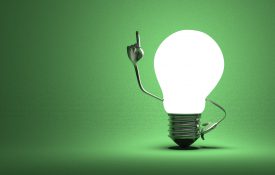-
Could Your Mindset Affect How Well A Treatment Works?
Anxiety about side effects can keep people from starting or sticking to drug regimens or medical procedures. A group of researchers at Stanford wanted to find out if a simple mindset shift could help patients tolerate an uncomfortable treatment. They learned that when physicians make the effort to reframe potentially unpleasant symptoms in a positive light, it helped patients stay calm and persevere. The researchers studied this approach with a group of families who, in a desperate search for relief from food allergies, signed their children up for a study testing the investigational treatment known as oral immunotherapy.
-
Why Forgetfulness Might Actually Help You
Many people worry that forgetting names, facts or tasks on their to-do list is a sign of aging or mental decline. A growing body of research offers a more welcome excuse: Forgetting stuff can actually be a byproduct of rigorous thinking, smooth decision-making or heightened creativity. Forgetting can help us block out useless or outdated information and keep us from fixating on a single set of ideas or thoughts. And contrary to the notion that forgetfulness reflects a withering of brain cells, scientists say it can actually be driven by the growth of new neurons in the hippocampus, a brain region linked to memory. This doesn’t excuse major memory mishaps.
-
Want to Close the Pay Gap? Pay Transparency Will Help
Here’s what we know about salary transparency: Workers are more motivated when salaries are transparent. They work harder, they’re more productive, and they’re better at collaborating with colleagues. Across the board, pay transparency seems to be a good thing. Transparency isn’t just about business bottom line, however. Researchers say transparency is important because keeping salaries secret reinforces discrimination. “From a worker’s perspective, without accurate information about peer compensation, they may not know when they’re being underpaid,” said Emiliano Huet-Vaughn, an economist at U.C.L.A. who ran a study in 2013 that found workers are more productive when salary is transparent.
-

The Meandering Path to That ‘Aha!’ Moment
A psychological study suggests that creative professionals may have their most inventive ideas when their minds are wandering.
-

New Research From Clinical Psychological Science
A sample of research exploring pain and self-injury, associative activation and false memories, flashbacks in PTSD, and a potential contributor to obesity.
-
Waiting game: An extended look at how we queue
Many of us experience multiple queues on an average day. If they move quickly, they're soon forgotten. But a slow line can seem to last forever and can put a drag on an entire day. What separates a good queuing experience from a bad one, however, is not just the speed of the line. How the wait makes us feel and line fairness (nobody likes line-jumpers) can have a greater impact on our perception of a queue than the amount of time we spend in it.

